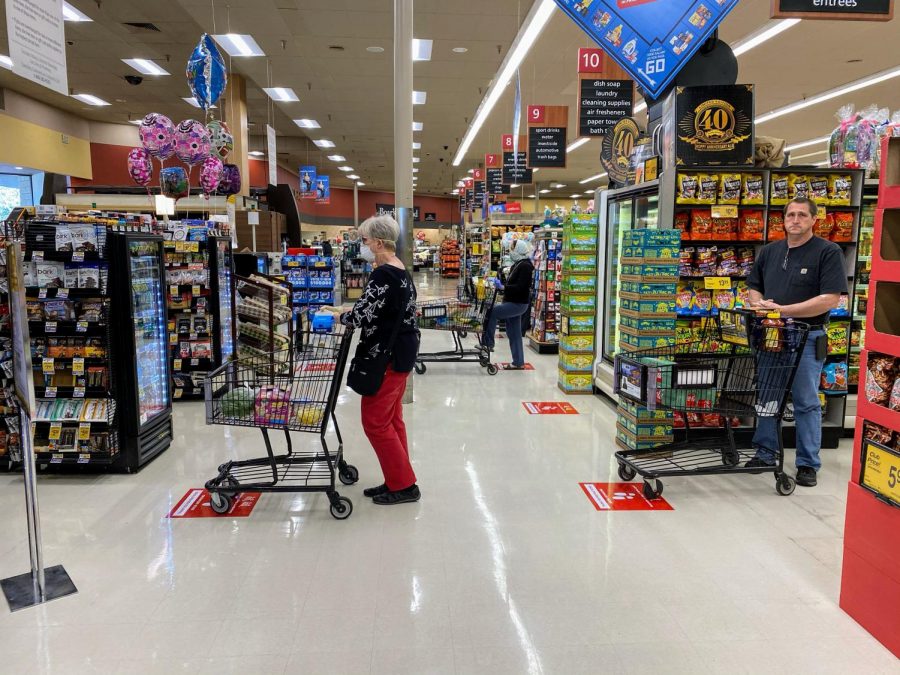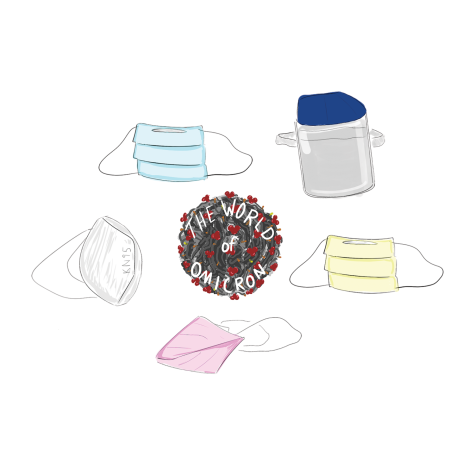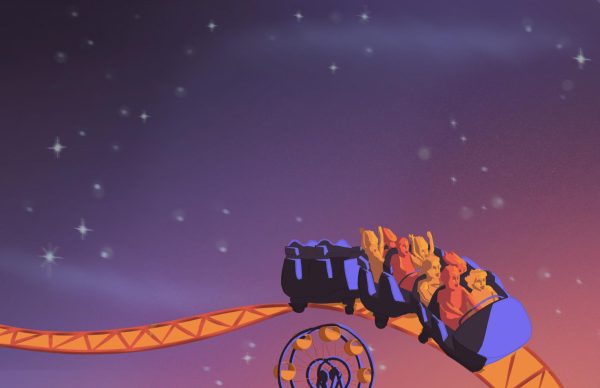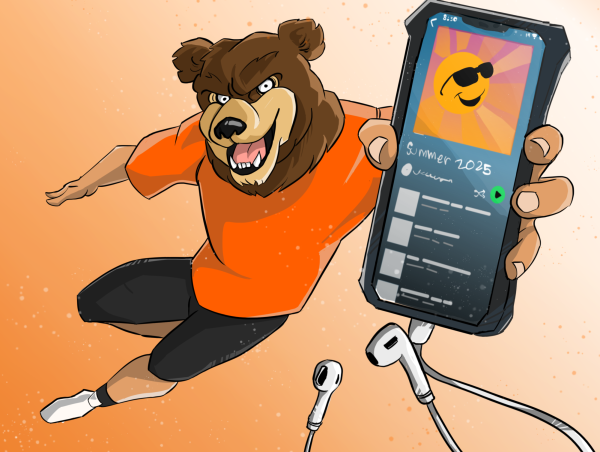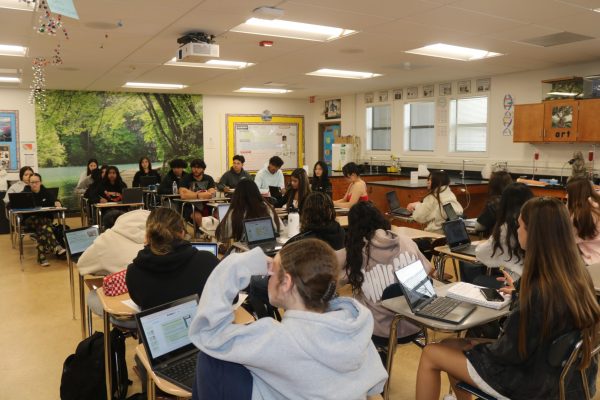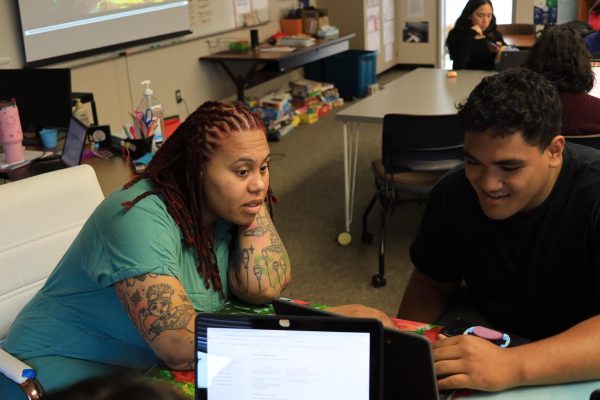Cal High students are working in grocery stores as essential workers
These workers put themselves at risk while being applauded as heroes or given the ‘corona stare’ by wary customers
This picture was taken at the Safeway on San Ramon Valley Blvd. before the mandate to wear face masks in public.
Mile-long lines, brawls over toilet paper and waves of frenzied shopping have put the brunt of the coronavirus panic on grocery store workers.
While other workers across the world may find ways to turn their jobs digital, these employees must be at work because of the highly essential nature of their jobs. Unfortunately, many grocery workers are struggling to stay safe and sane.
Cal High sophomore Logan Visola, who is a photographer for The Californian, has worked at Lucky’s in Danville for about a year. At the beginning of May, all the employees at his store were sent home for a two-week break because one of them had tested positive for coronavirus.
“The store was closed down early, I had to go home,” Visola said. “My manager called my mom afterwards. Everyone who was working there was placed on temporary leave. I am a bit worried, we still don’t know who it was [that tested positive].”
Visola said that he had been working very long shifts, but he’s happy employees are still getting paid while on leave. He expects everything to return to business as usual when he goes back to work.
Cal senior Jernail Dhaliwal has continued to work throughout the pandemic at Walmart Neighborhood Market in San Ramon, where he’s been employed since January. He said that Walmart decided to reduce his hours right before the pandemic, conveniently allowing him to keep a once-a-week schedule and reduce his risk of exposure.
“Since then, they’ve hired more people, so they’re okay with me not coming in as often,” Dhaliwal said. “[The new workers] are all people who lost their jobs because of the pandemic. There are a few people who used to work at a bottle factory, and even some teachers trying to earn extra money.”
“We’ve gotten a lot of new hires,” Visola said, “but as far as I know, no old employees have really left. In the end, we need people working in the grocery stores”
Since the job has become much more dangerous because of the virus and angry customers, Dhaliwal has come up with a name for the cold conduct of some customers: the “corona stare”.
“These days whenever you pass by someone, they give you the corona stare– do you have it?” he said. “Will you cough on me? Seventy five percent are avoiding conflict. The other 25 are giving you that stare.”
Senior Miranda Clark, who works at Sprouts in San Ramon, agreed with Dhaliwal’s description of customers.
“Mostly we get scared customers,” Clark said. “But some of them are more hostile and agitated about it. Sometimes the customers give pushback and it hurts you, in a way. Mentally, it hasn’t been easy. With graduation gone, it’s been an overload on me.”
Clark, who has worked at Sprouts for nearly a year and a half, said that common sense goes a long way in improving the situation.
“Please don’t freak out. Please don’t panic buy,” she said. “If you’re in our store for more than two hours, with two carts full of groceries, you’ve got a problem.”
Clark said she feels confident in her safety at work despite working shifts five days a week.
“I knew that my coworkers and manager would take care of me and try and support all the workers and customers,” Clark said. “I also decided to keep working because I kinda need the money for college.”
Weighing the risk and the return has become the norm for many students, especially because it boils down to getting paid or staying safe in isolation. Cal junior Kiley Soe has worked at Sprouts for close to a year and she made the decision to stop going in to work.
“I just feel that I’d rather not risk it personally,” Soe said. “I was a courtesy clerk, and I had to touch everything. I bagged stuff, collected carts, swept. I was concerned about who I would come into contact with and what I would touch.”.
But with businesses closing and companies downsizing, many workers find that clocking in is a means of survival.
“A lot of the workers don’t really have a choice, and the overtime pay is pretty sweet,” Dhaliwal said. “But the older employees are unhappy. They think Walmart hasn’t been doing enough.”
Dhaliwal said that Walmart has provided gloves, masks, and screens. But the screens are small, smaller than other stores, and the gloves run out more often than not, he said. There’s only one sink in the break room, and Dhaliwal said workers have to share the bathrooms with customers.
But Soe had a different picture of the situation at Sprouts.
“[My coworkers] feel that it’s not too bad,” she said. “I might even consider going back to work. In the store, they have to have gloves and masks, and only let a certain amount of people in. They have cones to keep people six feet apart.”
Because of the dire conditions associated with public exposure, netizens have taken to calling grocery store workers heroes for helping society.
“The job’s been more dangerous, but in general, it’s not much different from working before” Visola said.
Soe said she rejects this label of a hero and takes a utilitarian approach to the situation.
“People do need to get groceries, and for that to happen, people need to work at the stores,” Soe said. “Grocery working isn’t supposed to be dangerous, but at the same time, I don’t see us as heroes. We’re just going to work.”
While Dhaliwal agreed that the term “hero” doesn’t necessarily apply, he also feels that the public’s support is no substitute for systematic support.
“It’s great if you wanna call me a hero, but I’m still paying $500 under Walmart’s insurance for an X-ray,” he said. “‘Thank you for working, you’re so noble.’ I’m here for $13.50. It’s a different story online when you can post a smiling photo thanking [us]. But when the heroes want better pay and sick leave? ‘No, that’s alright’.”

Liann Bielicki is a senior and first year reporter for the Californian. Besides a love for reading and writing, she likes to occupy her time with music,...
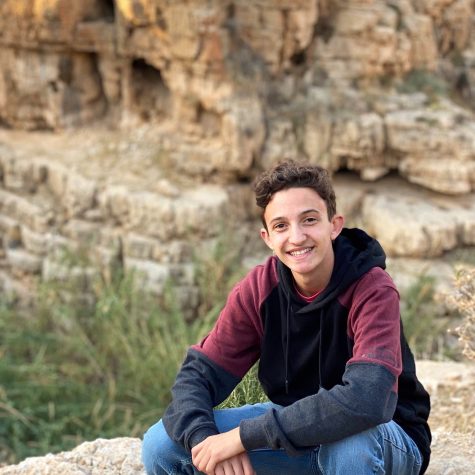
Isaac Oronsky is a senior and third-year newspaper student. He is serving as one of two Managing Editors for The Californian, and is beyond excited to...

